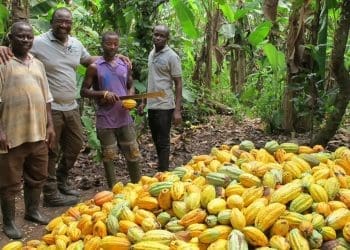Two people are reportedly dead following a violent clash at Sowutuom on Saturday, August 30, 2025, during the Homowo festival.
An eyewitness said the deceased included the Obrafor of Sowutuom and the son of the local chief.
Several others were believed to be injured, though the exact number remains unclear.
Gunfire and chaos
Videos of the incident circulating on social media show people shot and lying on the floor with bloodstains.
In one video, the injured were seen being loaded into the bucket of a pickup truck and rushed to the hospital.
Information gathered indicates that the confrontation began when residents of Dwenewoho attempted to sprinkle Kpokpoi, a traditional dish central to the festival, in Sowutuom.
This move was reportedly resisted by the local traditional leaders.
Dispute over sprinkling ritual
The disagreement quickly escalated into violence, with heavy gunfire reported.
An eyewitness said that after the Chelsea game, they heard gunshots from the junction, noting that for almost 30 minutes, “bullets were flying everywhere.”
According to the witness, the Sowutuom people insisted Dwenewoho could not sprinkle the dish, but they refused to stop, leading to the confrontation.
Residents flee, shops shut
The eyewitness further recounted how armed men stormed the area, forcing many residents to flee and lock up their shops. Police later moved in to restore calm, but many shops remained closed on Sunday as residents feared the violence could erupt again.
Homowo celebrations marred by violence
The Homowo festival, celebrated annually by the Ga people to mark the end of famine and the harvest season, is characterised by the sprinkling of Kpokpoi, symbolising abundance and thanksgiving.
However, in some communities, disagreements over where these rites may be performed have sparked tensions.
In Teshie, two deaths have also been reported following violent clashes linked to this year’s celebrations.
The Homowo festival, celebrated by the Ga people, is marked with the sprinkling of kpokpoi to signify victory over famine and to give thanks for a bountiful harvest.













